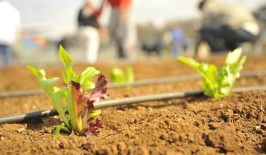India has been ranked 66th out of a list 105 countries on the recently released 2012 Global Food Security Index.
The study, coordinated by the Economicst Intelligence Unit (EIU) and commissioned by American chemical company DuPont, categorised the countries in terms of food affordability, availability and quality and safety.
DuPont’s study noted that the high level of poverty, lower income, less public spending on farm research, poor infrastructure, sluggish supply of quality protein are some of the key areas that must be addressed in order to aid the country’s food security hopes.
The Economic Times recently detailed the results of another report which estimated that global food prices could hit an all-time high in 2013, as drought sweeps through key crop harvesting areas such as the US, Russia and South America, putting immense strain on the billions of people living below the poverty line across the world.
There’s more to these figures than just doom and gloom. These studies were commissioned to help facilitate action to tackle problems relating to food security. A holistic, national as well as international approach needs to be implemented and monitored but it must be noted that a top-down method is also not the “easy fix”. Tackling problems of food security must employ an integrated approach which encompasses and is relevant to all the people lack of food and nutrition would affect i.e. everyone. There are grassroots measures that everyone can employ to help curb pressures relating to food security. Last week, we looked at an article published in the The Hindu’s Business Line which looked at how urban agriculture can address issues surrounding food security.
The United Nations has an extremely comprehensive website about food security and global food prices. Check here for all the details and watch the video below where UN Secretary-General Ban Ki-Moon calls upon all individuals, companies, organisations and governments to address food security:
Author: Anna Rees/ RESET editorial








